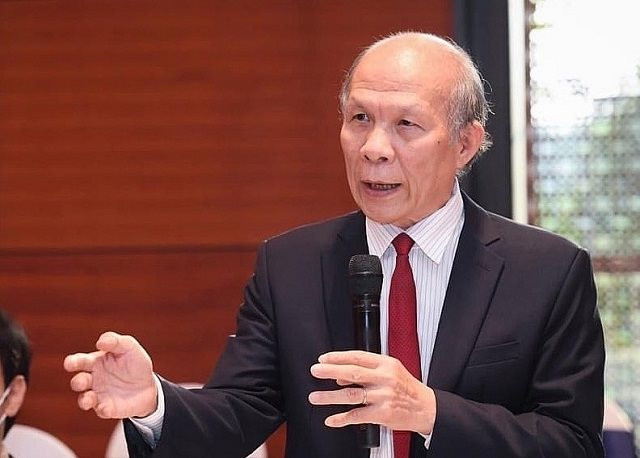.jfif) Opinion
Opinion

 |
| Economic expert Đinh Trọng Thịnh. Photo baolaocai.vn |
Within the roadmap for public sector salary reform, the Ministry of Home Affairs has identified that four out of six components are clear and ready for implementation. However, two components remain problematic and cannot yet be implemented: the new salary scale and the restructuring of nine new allowance regimes.
Therefore, until the basic salary and salary coefficient in the public sector are abolished, the Government proposes increasing the basic salary by 30 per cent, from VNĐ1.8 million to VNĐ2.34 million per month, starting from July 1.
Economic expert Đinh Trọng Thịnh talks to Voice of Vietnam about the matter.
According to calculations, if the salary reform is implemented as outlined in Resolution 27, the total salary fund (excluding bonuses) for officials, public employees and armed forces will increase by 30 per cent. Based on this, the Government proposes adjusting the basic salary by 30 per cent. What is your assessment of this proposal?
Although we have prepared and discussed this matter, job-based salary classification is still a complex issue with many differing opinions. Therefore, the Ministry of Home Affairs, with the Government's consent, proposes continuing to increase salaries by adjusting the basic salary rather than implementing job-based classification. I believe this is a necessary move, appropriate for the specific conditions and current reality.
Clearly, to determine salaries based on job positions, we need to define each position, its functions, duties, authority and requirements. Only then can we determine the appropriate salary for each position. Job-based salary classification will be suitable and beneficial for each unit and the entire national economy.
Does this 30 per cent increase in the basic salary meet the practical needs for narrowing the salary gap between the public and private sectors?
In reality, the current salary levels in the public sector are very low compared to the market average. It is even lower when viewed from the perspective of attracting elite workers to the public sector.
In neighbouring countries like Singapore or Thailand, public sector workers receive significantly higher salaries, ensuring a decent living and the ability to support their families. Clearly, those who are recruited into the public sector are talented, ambitious and capable of innovation. However, if after a period of review, they do not meet the requirements, they must leave the public sector. Thus, the public sector is always seen as a place that attracts talent.
In my opinion, a 30 per cent increase in the basic salary is still insufficient to raise public sector salaries to the level of the private sector, especially in the FDI (foreign direct investment) sector. However, it is an improvement compared to the previous situation.
To make the public sector truly desirable and a gathering place for capable and ambitious individuals, we need to continue researching ways to increase the income of public sector workers in the future.
Looking ahead, what are your expectations for continued salary reform?
We have a clear direction. In the future, we will abolish the basic salary and salary coefficient, determining salaries based on job positions to ensure that competent individuals receive deserving salaries. This is the correct goal that developed societies aim for.
However, it requires arranging positions, standardising and calculating specific salary levels for each position. Although there may be difficulties in the initial stages of implementation, it is necessary. The principle is to meet the demand: whoever holds a position should be paid appropriately for that position. Clearly, salaries must be higher than they are now to attract deserving individuals to the public sector labour market. VNS